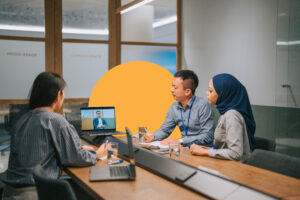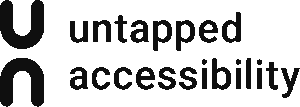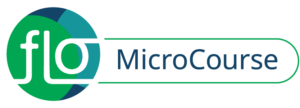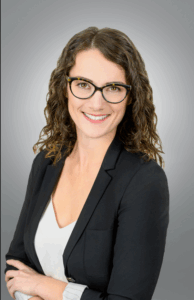
Event Description
In this interactive two-hour workshop, participants will be guided through the power and practice of reflection in action; a critical tool for deep learning, self-awareness, and both personal and professional growth.
Participants will explore:
- Why reflection matters: Understanding its role in learning, decision-making, and personal development.
- Effective prompts: How to craft and use reflective prompts to foster deeper insights.
- Ways to engage: How participants can respond to reflection prompts in different formats.
- Creative reflection activities: Engaging, hands-on exercises designed to bring reflection to life.
Through experiential learning, attendees will participate in various reflective exercises, gaining practical tools and strategies to integrate into their teaching, learning, and daily practices.
Register Now!
This session will not be recorded.
About the Facilitator
Your FLO Facilitators for this workshop will be Leva Lee and Helena Prins.
Leva Lee (she/her) is a Learning + Teaching Advisor at BCcampus. With a background in open learning, learning design, and educational technology, she has many years of experience designing online courses, resources, and offerings for the B.C. secondary and post-secondary educator communities.
Helena Prins (she/her) is a Learning + Teaching Advisor at BCcampus, where she coordinates the Facilitating Learning Online (FLO) portfolio. She began her career as a high school teacher in South Africa. Over the past 20 years, she has taught students of all ages and stages on four continents. A golden thread throughout her career has been breaking down barriers to learning.
Session Description
Web accessibility means making sure everyone can use your website, including people with disabilities. This brief session will introduce the basics of digital accessibility and the Web Content Accessibility Guidelines (WCAG). We’ll cover common issues that make websites inaccessible and how this impacts real users. Participants will leave with a clearer understanding of what digital accessibility is and why it is essential.
Learning Outcomes
- Understand the purpose of the Website Content Accessibility Guidelines (WCAG)
- Analyze audience needs and understand diverse user experiences, including that of people with disabilities
- Learn about common issues that make websites inaccessible
- Identify potential website barriers and explore actionable ways to improve accessibility
Schedule
- Introductions and access information – 2 minutes
- Key definitions – 5 minutes
- Overview of the WCAG and common inaccessibility issues – 10 minutes
- Understanding your audience – 5 minutes
- Actionable items – 3 minutes
- Q+A – 5 minutes
Register Now!
This notice is to inform you that this session will be recorded, archived, and shared after the event. By participating in this session, you acknowledge that your participation will be recorded and the recording will be made available publicly.
About the Facilitator
Nora Loyst (she/her) is an accessibility consultant with Untapped Accessibility who brings expertise in service delivery, facilitation, and community engagement. She is passionate about collaborating with community to translate accessibility planning into practice. Nora holds a B.A. in Health and Community Services from UVic and is currently completing her Masters in Leadership Studies. Her commitment to accessibility is guided by her own lived experience as a person with a disability and she is enriched by the varied perspectives and experiences of her friends, family, and community.

This session is supported by Untapped Accessibility. Untapped Accessibility launched in October 2022 to support BC organizations comply with the Accessible British Columbia Act. A certified social enterprise, they have helped over 180 organizations reach beyond compliance and create more accessible organizations with comprehensive and innovative approaches to disability inclusion. They generate revenue for Open Door Social Services Society, supporting the non-profit’s mission to open doors to lifelong learning and career success for more people with disabilities.
2025-26 Accessibility Bites Series
- Accessibility Bites: Introduction to Web Accessibility, August 28, 2025
- Accessibility Bites: Supporting Post-Secondary Students with ADHD, September 25, 2025
- Accessibility Bites: Let’s Talk about Learning Disabilities, October 30, 2025
- Accessibility Bites: The Gift of Dyslexia, November 27, 2025
- Accessibility Bites: Access Friction, December 11, 2025
- Accessibility Bites: UDL 3.0 in Practice, January 29, 2026
- Accessibility Bites: An Indigenous Lens on Disability Rights, February 26, 2026
For recordings and resources from previous Accessibility Bites workshops, visit the Accessibility Bites Pressbook.
Session Description
This brief session will offer practical strategies for creating learning environments that support students with ADHD. You’ll learn how to reduce cognitive load to support executive functioning, explore multi-modal teaching methods, and discuss ways to build flexibility without sacrificing accountability. Whether you’re designing a course or working one-on-one with students, you’ll leave with tools to better meet their needs and help them thrive.
Learning Outcomes
- Identify key challenges faced by post-secondary students with ADHD
- Select multi-modal strategies to support diverse attention and learning needs
- Examine course elements that balance flexibility and accountability to promote student success
Schedule
- Introductions and access information – 5 minutes
- Key definitions – 5 minutes
- Overview of multi-modal learning and cognitive load – 10 minutes
- Building in both flexibility and accountability – 5 minutes
- Wrap-up and ongoing learning: access statements – 5 minutes
Register Now!
This notice is to inform you that this session will be recorded, archived, and shared after the event. By participating in this session, you acknowledge that your participation will be recorded and the recording will be made available publicly.
About the Facilitator
Meg Ingram (they/them) is a multiply-disabled accessibility advocate with a passion for project management, planning coordination, and equitable education. Drawing from their background working in both higher education and social services, they have a deep passion for carving out accessible processes and building meaningful relationships within and across sectors. Meg holds an M.A. in Sociology, with a focus in disability studies, from Queen’s University, and a B.A. in Sociology from the University of Victoria.

This session is supported by Untapped Accessibility. Untapped Accessibility launched in October 2022 to support BC organizations comply with the Accessible British Columbia Act. A certified social enterprise, they have helped over 180 organizations reach beyond compliance and create more accessible organizations with comprehensive and innovative approaches to disability inclusion. They generate revenue for Open Door Social Services Society, supporting the non-profit’s mission to open doors to lifelong learning and career success for more people with disabilities.
2025-26 Accessibility Bites Series
- Accessibility Bites: Introduction to Web Accessibility, August 28, 2025
- Accessibility Bites: Supporting Post-Secondary Students with ADHD, September 25, 2025
- Accessibility Bites: Let’s Talk about Learning Disabilities, October 30, 2025
- Accessibility Bites: The Gift of Dyslexia, November 27, 2025
- Accessibility Bites: Access Friction, December 11, 2025
- Accessibility Bites: UDL 3.0 in Practice, January 29, 2026
- Accessibility Bites: An Indigenous Lens on Disability Rights, February 26, 2026
For recordings and resources from previous Accessibility Bites workshops, visit the Accessibility Bites Pressbook.
Event Description
 This one-week Facilitating Learning Online (FLO) MicroCourse is designed to help educators and instructional designers bridge the gap between the theory and practice of Universal Design for Learning (UDL) to make learning more equitable and meaningful. Participants will draw on UDL principles to plan and develop assessments, evaluate strategies, and provide constructive feedback on each other’s work. They are also encouraged to incorporate other pedagogical theories alongside UDL. This course is best suited for those with a theoretical understanding of UDL who are ready to explore its practical application in different scenarios and contexts.
This one-week Facilitating Learning Online (FLO) MicroCourse is designed to help educators and instructional designers bridge the gap between the theory and practice of Universal Design for Learning (UDL) to make learning more equitable and meaningful. Participants will draw on UDL principles to plan and develop assessments, evaluate strategies, and provide constructive feedback on each other’s work. They are also encouraged to incorporate other pedagogical theories alongside UDL. This course is best suited for those with a theoretical understanding of UDL who are ready to explore its practical application in different scenarios and contexts.
Learning Outcomes
By the end of the course, participants will be able to:
- Demonstrate the application of UDL principles to make learning environments more equitable
- Apply UDL principles to remove barriers from assessments
- Evaluate the efficacy of UDL principles in removing barriers
Course Logistics
Time commitment: 8–10 hours
Format: Asynchronous
While most of the learning will happen asynchronously, we will offer an optional synchronous session on Tuesday, October 21, 2025, 9:30–10:30 a.m. PST.
Registration Coming Soon
This notice is to inform you that this session will be recorded, archived, and shared with course registrants. By participating in this session, you acknowledge that your participation in this session will be recorded and the recording will be made available to other course participants.
About the Facilitator
Hajime Kataoka (he/him) is an uninvited guest from Kobe, Japan who lives on the traditional territory of Lekwungen and W̱SÁNEĆ peoples. As a Director of Online Learning Services at the Division of Continuing Studies at the University of Victoria, he provides leadership in the advancement of the Division’s online learning strategy.
Session Description
Millions of Canadian learners are affected by learning disabilities, yet these challenges often go misunderstood, leading to poorer educational outcomes and repeated negative experiences. This session will provide a brief overview of learning disabilities, how they commonly show up in classroom settings, and evidence-based strategies for supporting these learners.
Register Now!
This notice is to inform you that this session will be recorded, archived, and shared after the event. By participating in this session, you acknowledge that your participation will be recorded and the recording will be made available publicly.
About the Facilitator

Dr. Jennifer Fane (she/her) is the Lead Research Associate in the Education and Skills knowledge area at The Conference Board of Canada. She holds an interdisciplinary PhD in education, public health, and social policy from Flinders University, South Australia. She started her career as a classroom teacher and has worked as a teacher, professor, and educational researcher in the birth-to-five, K-12, and post-secondary systems in Canada and Australia for over 18 years. Prior to joining the Conference Board, Jennifer was the Director of Education at the Learning Disabilities Society of Greater Vancouver, supporting neurodivergent learners ages three-to-adult across BC. Jennifer brings a passion for translating research into practice to her work at the Board.
This session is supported by The Conference Board of Canada.

The Conference Board of Canada is an independent, not-for-profit research organization whose goal is to equip Canadian leaders and decision makers with the integrated and independent research required to enable them to tackle society’s greatest challenges. This session presents research conducted in partnership with the Future Skills Centre on the neuroinclusivity of Canadian post-secondary education.
2025-26 Accessibility Bites Series
- Accessibility Bites: Introduction to Web Accessibility, August 28, 2025
- Accessibility Bites: Supporting Post-Secondary Students with ADHD, September 25, 2025
- Accessibility Bites: Let’s Talk about Learning Disabilities, October 30, 2025
- Accessibility Bites: The Gift of Dyslexia, November 27, 2025
- Accessibility Bites: Access Friction, December 11, 2025
- Accessibility Bites: UDL 3.0 in Practice, January 29, 2026
- Accessibility Bites: An Indigenous Lens on Disability Rights, February 26, 2026
For recordings and resources from previous Accessibility Bites workshops, visit the Accessibility Bites Pressbook.

Session Description
A large number of learners think differently than traditional educational methods account for. They are often labelled as having learning disabilities, when in reality, their differences reflect unique strengths, not deficits.
In this session, Sue will share insights from her hands-on experience working with creative, inventive, and highly capable learners who are frequently misunderstood. Educators will gain a deeper understanding of these diverse thinkers and explore ways to better support their unique strengths in educational settings.
Agenda
In this session, we’ll explore:
- The three core components underlying a wide range of learning challenges
- Tools and strategies that help learners overcome these challenges
- How learning challenges can manifest in adult life
- What can be done to prevent or correct these challenges early on
- Practical strategies to support those working with adults who face learning barriers
Register Now!
This notice is to inform you that this session will be recorded, archived, and shared after the event. By participating in this session, you acknowledge that your participation will be recorded and the recording will be made available publicly.
About the Facilitator
Sue Blyth Hall is dyslexic and so is her son. She is a Davis® Facilitator who has been working with children and adults for over twenty-seven years and has never yet found anyone to be learning disabled; some people just learn differently from the way they are taught. She is the Founder of The Whole Dyslexic Society, a TEDx Speaker (2021), Author of Fish Don’t Climb Trees, and producer of the documentary WHO KNEW Dyslexia is a Way of Thinking (2025).
She works with children and adults, who all share the “Gift of Dyslexia” and sees it manifesting in many areas: reading, spelling, paying attention, math, co-ordination, printing, and more. She works tirelessly to improve the understanding and awareness of what dyslexia is, how it arises, ways to correct associated challenges, and even more: ways that these so-called learning disabilities can be prevented.
2025-26 Accessibility Bites Series
- Accessibility Bites: Introduction to Web Accessibility, August 28, 2025
- Accessibility Bites: Supporting Post-Secondary Students with ADHD, September 25, 2025
- Accessibility Bites: Let’s Talk about Learning Disabilities, October 30, 2025
- Accessibility Bites: The Gift of Dyslexia, November 27, 2025
- Accessibility Bites: Access Friction, December 11, 2025
- Accessibility Bites: UDL 3.0 in Practice, January 29, 2026
- Accessibility Bites: An Indigenous Lens on Disability Rights, February 26, 2026
For recordings and resources from previous Accessibility Bites workshops, visit the Accessibility Bites Pressbook.
Event Description

Join us for this one week Facilitating Learning Online (FLO) MicroCourse about the First Peoples Principles of Learning, which represent common elements in the varied teaching and learning approaches relevant to Indigenous communities.
Learning Outcomes
By the end of the course, participants will be able to:
- Identify and familiarize themselves with the First Peoples Principles of Learning
- Apply the First Peoples Principles of Learning to their course development and delivery
Course Logistics
Time commitment: 6–8 hours
Format: Asynchronous
While most of the learning will happen asynchronously, we will offer an optional synchronous session on Tuesday, December 2, 2025, 3:30–4:30 p.m. PST.
Registration Coming Soon
This notice is to inform you that this session will be recorded, archived, and shared with course registrants. By participating in this session, you acknowledge that your participation in this session will be recorded and the recording will be made available to other course participants.
About the Facilitators
Your FLO Facilitators will be Connie Strayer and Robyn Grebliunas.
Connie Strayer (she/her) is Métis and German. With gratitude, she acknowledges the Qualicum and Snaw-naw-as First Nations on whose ancestral lands she lives, works, and plays. Connie is an educational developer and Indigenous relationship specialist, as well as a regular collaborator with BCcampus. Through a student-centred and decolonized approach, she strives to create systemic change within post-secondary spaces and increase mental health literacy and skills for educators, students, and community members. Connie has had the honour of working under the teachings of many Indigenous Elders, Knowledge Keepers, and colleagues in many of B.C.’s First Nations communities; these relationships and teachings have influenced her approach to education.
Robyn Grebliunas (she/her) is Métis and Lithuanian. With appreciation, she acknowledges the Okanagan and Syilx First Nations on whose ancestral lands she lives, works, and plays. Robyn specializes in Indigenous adult education and communication and she is grateful for her many years of working in public and private Indigenous post-secondary education. Robyn has a master’s degree in professional communications, with research focused on creating relationship efficacy in the digital realm. She is passionate about creating online education learning experiences for adult learners, and her educational philosophy combines traditional grassroots learning with two-way and strength-based learning. Robyn has had the honour of working under the teachings of many Indigenous Elders and Knowledge Keepers in many First Nations communities in B.C. and Alberta; this opportunity has greatly influenced her approach to education.

Session Description
In this interactive session we will explore the concept of Access Friction—the idea that no course can fully anticipate every learner’s needs—and how this limitation opens space for more collaborative and even improvisatory approaches to course design and delivery.
Using a hypothetical case study where access supports both include and exclude specific learners, we will frame Access Friction as an invitation to create deeply inclusive learning environments. Together we will develop responses to the multiple learning needs highlighted in the case, setting aside fixed learning outcomes to embrace learning as a process of experimentation and responsive design.
What to bring (optional): Examples of access friction from your own teaching and learning experience for group discussion.
Agenda
- Overview of Access Friction using definitions by disabled researchers, educators, and activists
- Use Zoom’s synchronous collaboration tools to respond to a hypothetical case study of Access Friction
- Discussion, reflections, and questions
Register Now!
This notice is to inform you that this session will be recorded, archived, and shared after the event. By participating in this session, you acknowledge that your participation will be recorded and the recording will be made available publicly.
About the Facilitator
Stefan Sunandan Honisch (he/him) is a disabled researcher, educator, and musician. He is a sessional instructor in Theatre Studies, and a Scholar-in-Residence at St. John’s College, on the traditional, ancestral, and unceded lands of the Musqueam Nation, on which the University of British Columbia’s Vancouver campus is situated. Honisch has also previously worked for the BC Public Service Agency’s Learning Centre.
2025-26 Accessibility Bites Series
- Accessibility Bites: Introduction to Web Accessibility, August 28, 2025
- Accessibility Bites: Supporting Post-Secondary Students with ADHD, September 25, 2025
- Accessibility Bites: Let’s Talk about Learning Disabilities, October 30, 2025
- Accessibility Bites: The Gift of Dyslexia, November 27, 2025
- Accessibility Bites: Access Friction, December 11, 2025
- Accessibility Bites: UDL 3.0 in Practice, January 29, 2026
- Accessibility Bites: An Indigenous Lens on Disability Rights, February 26, 2026
For recordings and resources from previous Accessibility Bites workshops, visit the Accessibility Bites Pressbook.
Event Description

How can we facilitate maximally accessible online learning environments while recognizing that some learners will experience access barriers where other learners experience access supports? Access friction can pose challenges to implementing access and demonstrates there is no ‘one size fits all’ approach (Glossary, Access Anthology: Reflections on Disability Art and Culture, Gallery TPW, 2023, p. 66).
During this Facilitating Learning Online (FLO) MicroCourse, learners will have the opportunity to explore effective methods for navigating what some disability communities call access friction. Through problem-based learning, participants will develop inclusive, non-hierarchical ways of anticipating, navigating, and responding to access friction by drafting statements for their course syllabi that detail their planned approach.
Participants also will review each other’s draft statements, allowing them to:
- Identify frequently encountered sources of access friction (Example: cameras on to facilitate lip-reading versus cameras off to support mental health needs)
- Craft student-centered approaches to navigating access friction in online environments
- Provide constructive peer review for syllabus accessibility statements using online asynchronous annotation tools
Learning Outcomes
By the end of the course, participants will be able to:
- Recognize what constitutes access friction in online learning
- Practice effective methods for mitigating access friction in flexible and inclusive ways
Course Logistics
Time commitment: Six to eight hours
Format: Asynchronous
While most of the learning will happen asynchronously, we will offer an optional synchronous session on Thursday, January 22, 2026, 10:00–11:00 a.m. PST.
Registration Coming Soon
This notice is to inform you that this session will be recorded, archived, and shared with course registrants. By participating in this session, you acknowledge that your participation in this session will be recorded and the recording will be made available to other course participants.
About the Facilitator
Stefan Sunandan Honisch (he/him) is a disabled researcher, educator, and musician. He is a sessional instructor in Theatre Studies, and a Scholar-in-Residence at St. John’s College, on the traditional, ancestral, and unceded lands of the Musqueam Nation, on which the University of British Columbia’s Vancouver campus is situated. Honisch has also previously worked for the B.C. Public Service Agency’s Learning Centre.

Session Description
Are you familiar with the Universal Design for Learning (UDL) framework and trying out some ideas? Are you interested in accessible pedagogy? Interested in upping your UDL game? Join us for ideas on extending your UDL-based teaching practices using the new UDL 3.0 guidelines.
Register Now!
This notice is to inform you that this session will be recorded, archived, and shared after the event. By participating in this session, you acknowledge that your participation will be recorded and the recording will be made available publicly.
About the Facilitator
Your facilitator for this session is Dr. Seanna Takacs.
Seanna is Practice Lead in Accessibility Services at KPU. She consults on UDL and accessible pedagogy for post-secondary institutions in British Columbia and is Co-chair for the Accessibility and Inclusion Community of Practice for Canadian Association of College & University Student Services (CACUSS).
2025-26 Accessibility Bites Series
- Accessibility Bites: Introduction to Web Accessibility, August 28, 2025
- Accessibility Bites: Supporting Post-Secondary Students with ADHD, September 25, 2025
- Accessibility Bites: Let’s Talk about Learning Disabilities, October 30, 2025
- Accessibility Bites: The Gift of Dyslexia, November 27, 2025
- Accessibility Bites: Access Friction, December 11, 2025
- Accessibility Bites: UDL 3.0 in Practice, January 29, 2026
- Accessibility Bites: An Indigenous Lens on Disability Rights, February 26, 2026
For recordings and resources from previous Accessibility Bites workshops, visit the Accessibility Bites Pressbook.
